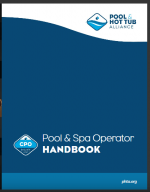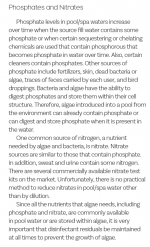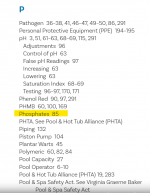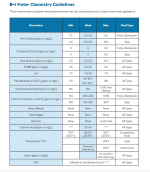So my pool company was adamant that a high level of phosphates (>1000ppb) will eventually damage my pool heater and void it's warranty. Any element of truth to this or are they just trying to sell me more phosphate remover?
Thanks
Thanks







